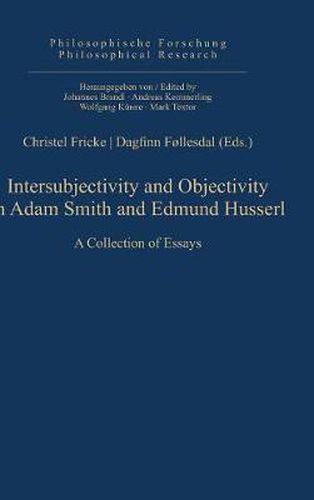Readings Newsletter
Become a Readings Member to make your shopping experience even easier.
Sign in or sign up for free!
You’re not far away from qualifying for FREE standard shipping within Australia
You’ve qualified for FREE standard shipping within Australia
The cart is loading…






Can we have objective knowledge of the world? Can we understand what is morally right or wrong? Yes, to some extent. This is the answer given by Adam Smith and Edmund Husserl. Both rejected David Hume’s skeptical account of what we can hope to understand. But they held his empirical method in high regard, inquiring into the way we perceive and emotionally experience the world, into the nature and function of human empathy and sympathy and the role of the imagination in processes of intersubjective understanding. The challenge is to overcome the natural constraints of perceptual and emotional experience and reach an agreement that is informed by the facts in the world and the nature of morality. This collection of philosophical essays addresses an audience of Smith- and Husserl scholars as well as everybody interested in theories of objective knowledge and proper morality which are informed by the way we perceive and think and communicate.
$9.00 standard shipping within Australia
FREE standard shipping within Australia for orders over $100.00
Express & International shipping calculated at checkout
Can we have objective knowledge of the world? Can we understand what is morally right or wrong? Yes, to some extent. This is the answer given by Adam Smith and Edmund Husserl. Both rejected David Hume’s skeptical account of what we can hope to understand. But they held his empirical method in high regard, inquiring into the way we perceive and emotionally experience the world, into the nature and function of human empathy and sympathy and the role of the imagination in processes of intersubjective understanding. The challenge is to overcome the natural constraints of perceptual and emotional experience and reach an agreement that is informed by the facts in the world and the nature of morality. This collection of philosophical essays addresses an audience of Smith- and Husserl scholars as well as everybody interested in theories of objective knowledge and proper morality which are informed by the way we perceive and think and communicate.